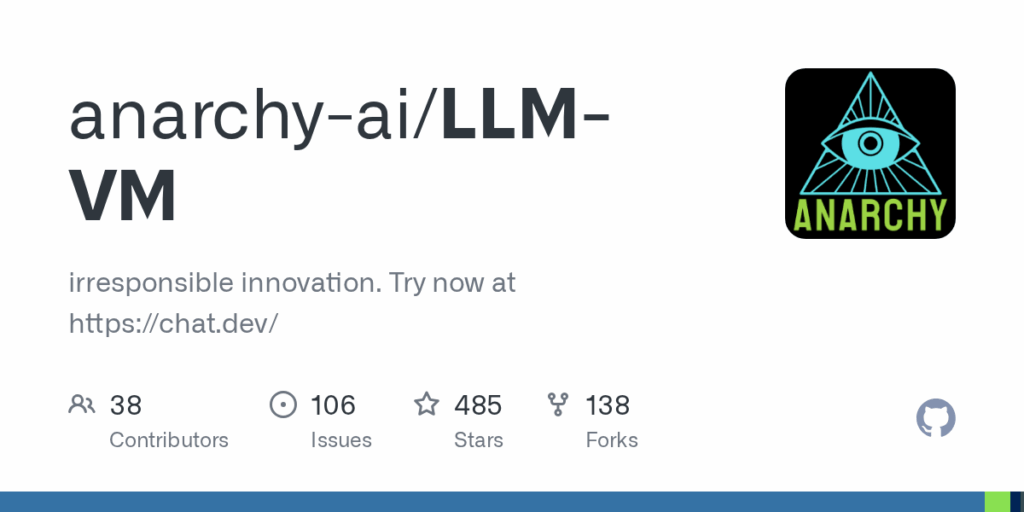LLM VM
Basic Information
LLM-VM is an open-source backend and virtual machine for running and orchestrating large language models. It is presented as a highly optimized, opinionated interpreter for human language that coordinates between data, models, prompts and external tools to provide modern completion features in one place. The README describes it as a way to give LLMs additional capabilities such as tool usage, batch and architecture-aware inference optimization, student-teacher distillation, and a library-plus-server deployment model. It targets developers and researchers who want to run open models locally or via HTTP endpoints, experiment with model swapping, and integrate agents. The project is in beta and notes that development is currently on pause. Installation options include pip install and repository cloning for Mac, Linux and Windows.








